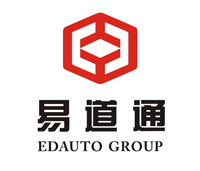A new study released by the Brazilian Automobile Manufacturers Association (Anfavea) on September 27 revealed a major shift in Brazil's automotive landscape. The report predicts that sales of new pure electric and hybrid vehicles are expected to exceed those of internal
combustion engine vehicles by 2030. This forecast is particularly noteworthy given Brazil's status as the world's eighth-largest auto producer and sixth-largest auto market. Regarding domestic sales.
The surge in electric vehicle (EV) sales is largely attributed to the growing presence of Chinese automakers in the Brazilian market. Companies such as BYD and Great Wall Motors have become major players, actively
exporting and selling electric vehicles in Brazil. Their aggressive market strategies and innovative technologies place them at the forefront of the booming electric vehicle industry. In 2022, BYD achieved impressive results, selling 17,291 vehicles in Brazil. This momentum has continued into 2023, with sales in the first half of the year reaching an impressive 32,434 units, almost double the previous year's total.

BYD's success is attributed to its extensive patented technology portfolio, particularly in battery technology and electric drive systems. The company has made major breakthroughs in both hybrid and pure electric vehicles, allowing it to offer a diverse range of models that meet different consumer preferences. From compact electric cars to luxury electric SUVs, BYD's product line is characterized by a focus on pure electric models, which are favored by Brazilian environmentally friendly consumers.
In contrast, Great Wall Motors has adopted a more diversified product layout. While producing traditional fuel vehicles, the company has also made significant investments in the field of new energy vehicles. The WEY brand under Great Wall Motors has performed particularly well in the plug-in hybrid and pure electric fields, becoming a strong competitor in the new energy vehicle market. The dual focus on traditional and electric vehicles allows Great Wall to appeal to a wider audience, catering to consumers who may still prefer internal combustion engines while also appealing to those looking to transition to electric vehicles.
BYD and Great Wall Motors have made great progress in improving the energy density of power batteries, extending vehicle cruising range, and optimizing charging facilities. These advances are critical to addressing consumer concerns about the utility and convenience of electric vehicles. As the Brazilian government continues to promote sustainable transportation initiatives, these automakers' efforts align with national goals to reduce carbon emissions and promote clean energy.
The competitive landscape in Brazil's electric vehicle market is further complicated by the lag of traditional U.S. and European automakers. While these established brands have a strong foothold in internal combustion engines, they have struggled to keep up with the rapid progress of their Chinese counterparts in electric vehicles. This gap presents both a challenge and an opportunity for traditional automakers to innovate and adapt to changing market dynamics.
As Brazil moves towards a future dominated by electric and hybrid vehicles, the implications for the automotive industry are profound. The anticipated shift in consumer preferences will not only reshape the market but also impact the industry’s manufacturing practices, supply chains and employment. The transition to electric vehicles is expected to create new jobs in areas such as battery production, charging infrastructure development and vehicle maintenance, while also requiring the retraining of workers in traditional automotive roles.
Taken together, Anfavea's findings mark a transformative period for the Brazilian automotive industry. Brazil's auto production and sales landscape is set to undergo major changes as electric and hybrid vehicles become increasingly dominant, driven by the innovation efforts of companies such as BYD and Great Wall Motors. As Brazil prepares for this shift, stakeholders across the industry must adapt to changing consumer demands and the regulatory environment to ensure Brazil remains competitive in the global automotive market. The next few years will be critical in determining how effectively the industry responds to this shift and capitalizes on the opportunities presented by the electric vehicle revolution.
Phone / WhatsApp: 13299020000
Post time: Oct-08-2024


